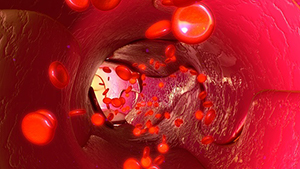
Photo Credit: Getty
In a study published in the Journal of Gastrointestinal Oncology, Mody et al described results from patients with hepatocellular carcinoma undergoing circulating tumor DNA (ctDNA) testing in a real-time clinical context. The authors wrote, “[ctDNA assessment] holds incredible promise for early detection of disease, serial monitoring of tumor heterogeneity, elucidation of therapeutic targets, and evaluation of treatment response and mechanisms of resistance.”
Methods
Over a period of about 3 years, 35 patients hepatocellular carcinoma underwent ctDNA testing with a clinically available assay. The majority of samples were tested with a 73-gene panel. More than 70% of the patients had advanced (stage III or IV) disease.
“Patients with these cancers stand to benefit immensely from the use of ctDNA technologies, and concerted efforts at further investigation of such are critically needed.”— Mody et al
Tweet this quote
Results
Forty-four samples were collected from the patients. The median number of genetic alterations per samples was 3.5 (excluding variants of undetermined significance), with a median allele frequency of 0.65%. A total of 122 unique alterations were identified, and the most common altered genes (excluding variants of undetermined significance or synonymous alterations), were TP53 (altered in 18% of patients), TERT (14%), CTNNB1 (13%), ARID1A (9%), MYC (5%), BRAF (4%), CCND1 (4%), CDK6 (4%), and MET (4%), and EGFR (3%).
The authors concluded, “Herein, we describe feasibility of ctDNA testing and results from such testing in [hepatocellular carcinoma] patients undergoing ctDNA testing in a real-time clinical context. Patients with these cancers stand to benefit immensely from the use of ctDNA technologies, and concerted efforts at further investigation of such are critically needed.”
Disclosure: For full disclosures of the study authors, visit jgo.amegroups.com.

